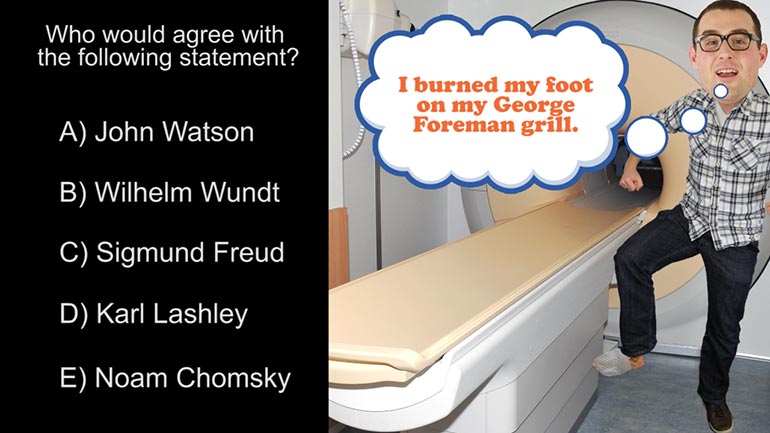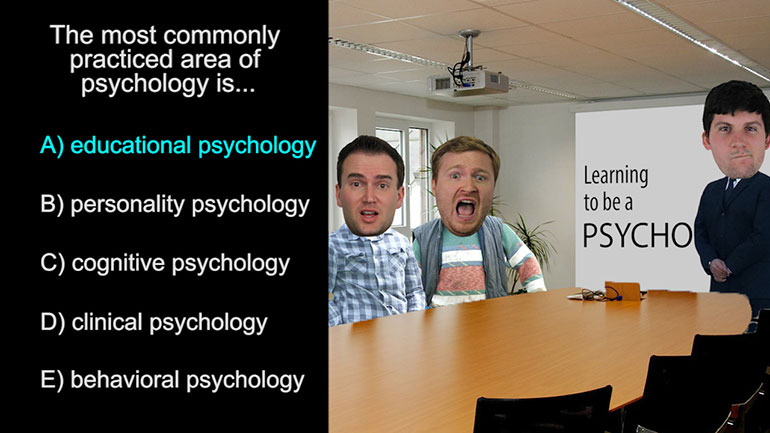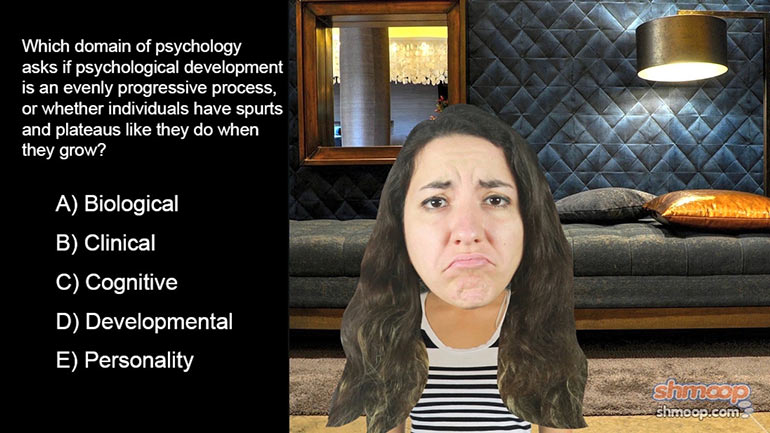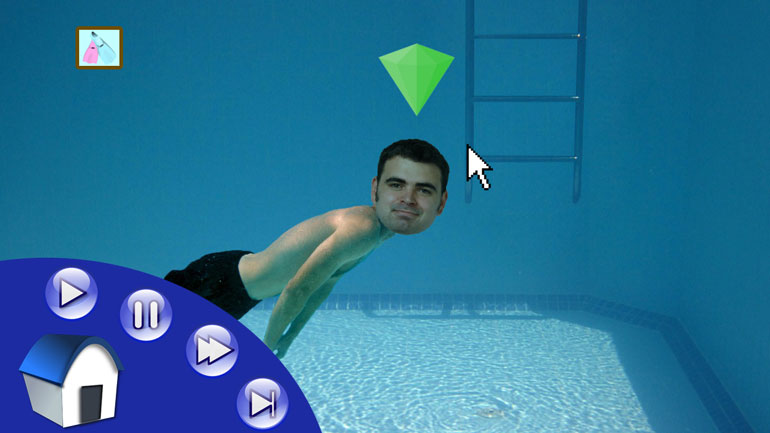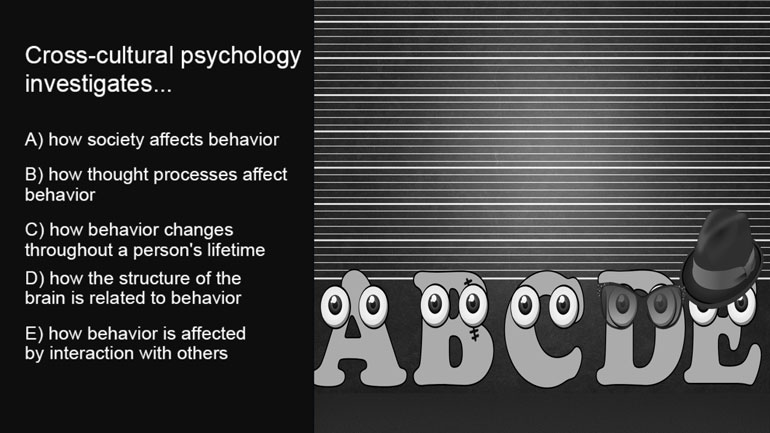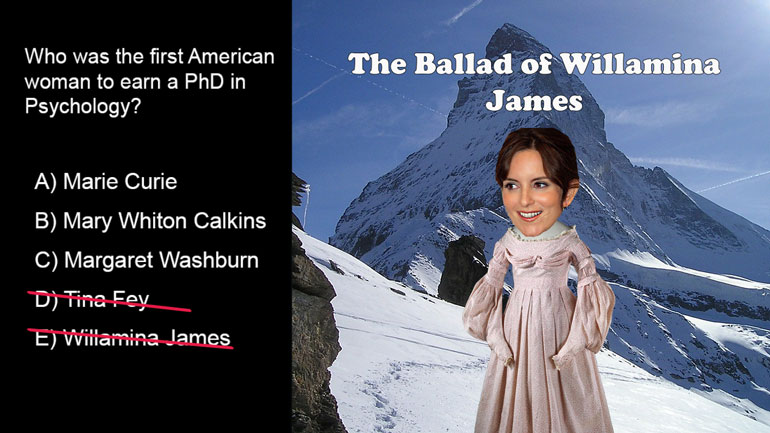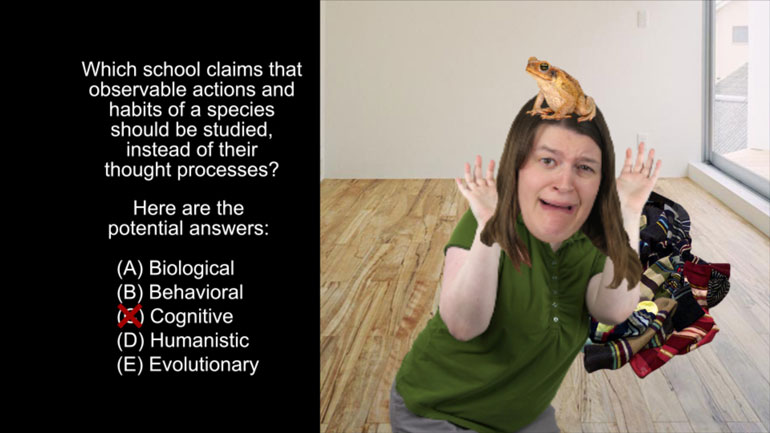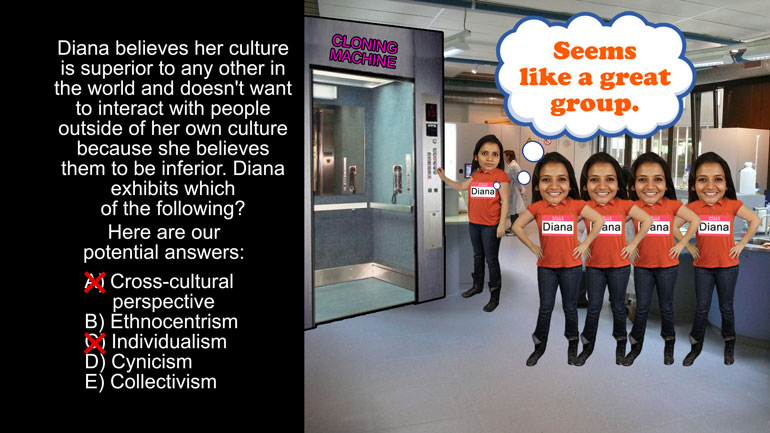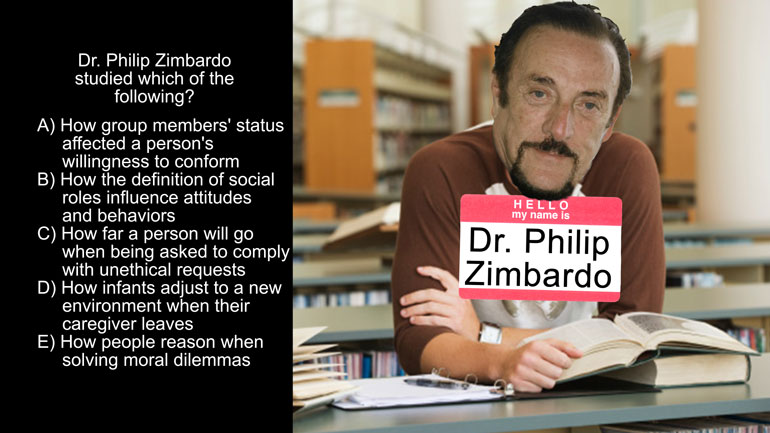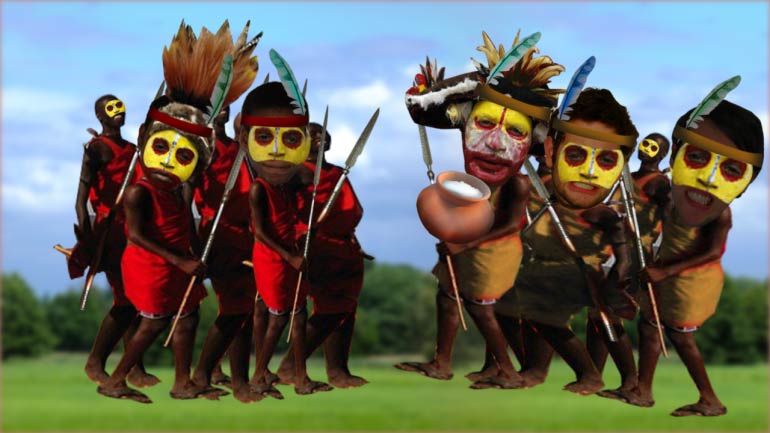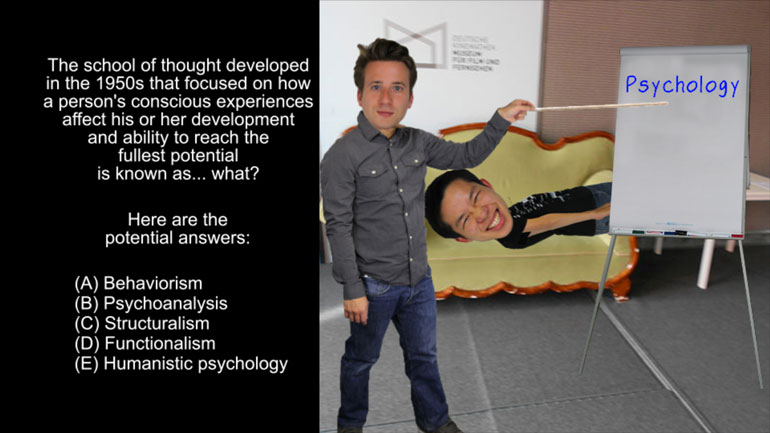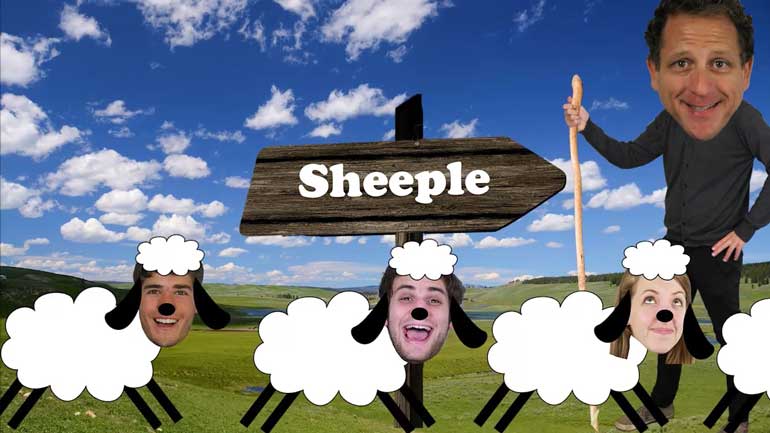ShmoopTube
Where Monty Python meets your 10th grade teacher.
Search Thousands of Shmoop Videos
History and Approaches Videos 15 videos
AP Psychology 1.1 History and Approaches. Which of these men was a German scientist who studied the human mind through introspection?
AP Psychology 1.2 History and Approaches. The study of the unconscious mind to explain behavior is referred to as psychoanalysis and was developed...
AP Psychology 1.4 History and Approaches. Who would agree with the following statement?
AP Psychology 3.2 History and Approaches 176 Views
Share It!
Description:
AP Psychology 3.2 History and Approaches. Whose research would be most likely to study how the presence of one event in the environment signals that something else is about to occur?
Transcript
- 00:00
Thank you We sneak and who's your shmoop too sure
- 00:05
brought to you by the sins where kids of all
- 00:08
ages can have a blast acting as sadistic and murderous
- 00:11
overlords are well here's your question whose research would be
- 00:15
most likely to study how the presence of one event
Full Transcript
- 00:18
in the environment signals that something else is about to
- 00:22
occur Your answers are whose research you know All right
- 00:28
when you're discussing the occurrence of events within a context
- 00:30
of psychology you're very often talking about behaviour And while
- 00:34
three of our potential answers were behaviorist two of them
- 00:37
were not let's start by eliminating those outsiders first to
- 00:40
go Charles darwin's garland was a naturalist and geologist best
- 00:45
known for his contributions to the theory of evolution and
- 00:47
natural selection So naturally he's not our god Sorry chuck
- 00:51
we're contractually obligated to seize any and all ton opportunity
- 00:55
I'm as lo is the other non behaviorist on our
- 00:57
list he's best known for creating his hierarchy of needs
- 01:00
which stated that one should deal with their most pressing
- 01:03
need before concerning themselves with their next highest names So
- 01:07
basically once physiological needs like food and water would need
- 01:10
To be met before worrying about resource is health and
- 01:13
employment which would in turn needs be met before they
- 01:17
worry about friendship and intimacy Unless you're a sense then
- 01:20
all bets are off all right onto our behaviorist starting
- 01:23
with john b watson watson was a psychologist known for
- 01:27
establishing the school of beef abe you're ism his work
- 01:30
with animals and children focused on offering conditioning which is
- 01:34
the study of how rewarding punishment affects the likelihood of
- 01:37
a behavior occurring again well are inquisitive Sim thinks the
- 01:40
best way to make a new friend is to throw
- 01:42
pineapples of their head while clucking like a chicken Other
- 01:45
sins don't agree and because our sin doesn't enjoy being
- 01:48
slapped he'll learn to adjust his behavior and not do
- 01:51
it again While it's fun to watch this type of
- 01:53
research isn't what we're after so we can eliminate watson
- 01:56
Bf skinner was a behavior as much life watson but
- 01:59
his shared into just an operator conditioning means we can
- 02:01
eliminate him for similar reasons No hard feelings guys take
- 02:05
a load off We've got a great game you can
- 02:07
play well that leaves us just with pavlak best known
- 02:10
for his experiment involving a drooling dog and a ringing
- 02:13
bell pavlov didn't study offering conditioning But instead classical conditioning
- 02:18
which looked at how one stimulus can signal the approach
- 02:21
of another cavallo's famous experiment with dogs involved providing them
- 02:25
with the tree and ringing a bell Each time the
- 02:27
treat was presented the dog would salivate Will eventually pavlov
- 02:30
remove the presence of the treat and would simply ring
- 02:33
the bell The dogs had grown accustomed to associating the
- 02:36
bell with tree in turn would salivate at the very
- 02:38
sound of the bell Well this clearly showed the presence
- 02:41
of one event in the environment singling the occurrence of
- 02:44
another and that's exactly what we're looking for It's Also
- 02:47
why we often called classical conditioning pavlovian conditioning a term
- 02:51
which will forever be conditioned to associate with the presence
- 02:54
of roast dog slobber Break Now someone stopped watson and 00:02:58.393 --> [endTime] skinner has clearly gone too far
Related Videos
AP Psychology 2.2 Social Psychology. Which of the following was an independent variable manipulated in Asch's research?
AP Psychology 1.1 Personality. According to Freud, these three parts of personality are constantly in conflict.
AP Psychology 1.1 Sensation and Perception. The process by which the brain can turn sensory stimuli from the outside world into electrical signals...
AP Psychology 1.1 Social Psychology. Which of the following best describes social psychology?
AP Psychology 1.1 States of Consciousness. Who conducted research on REM sleep deprivations?


